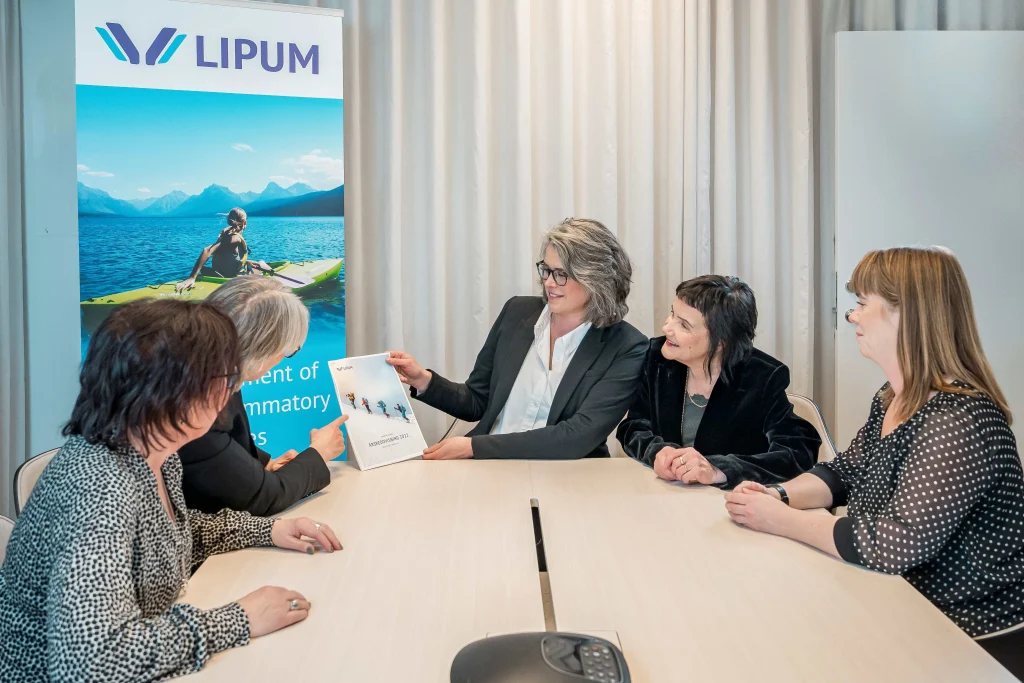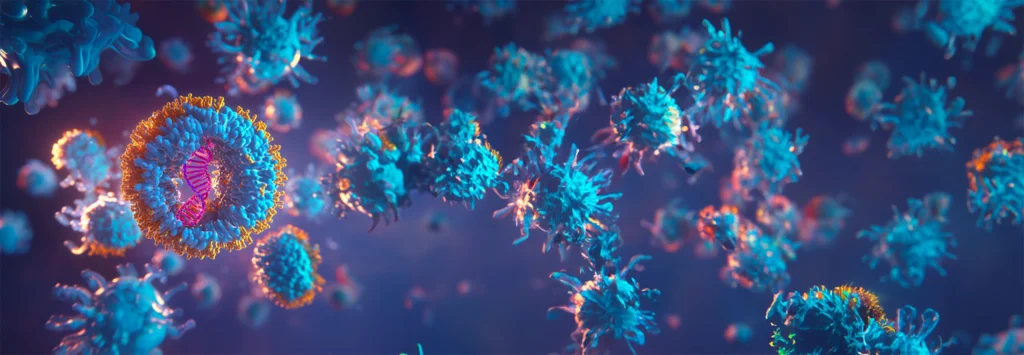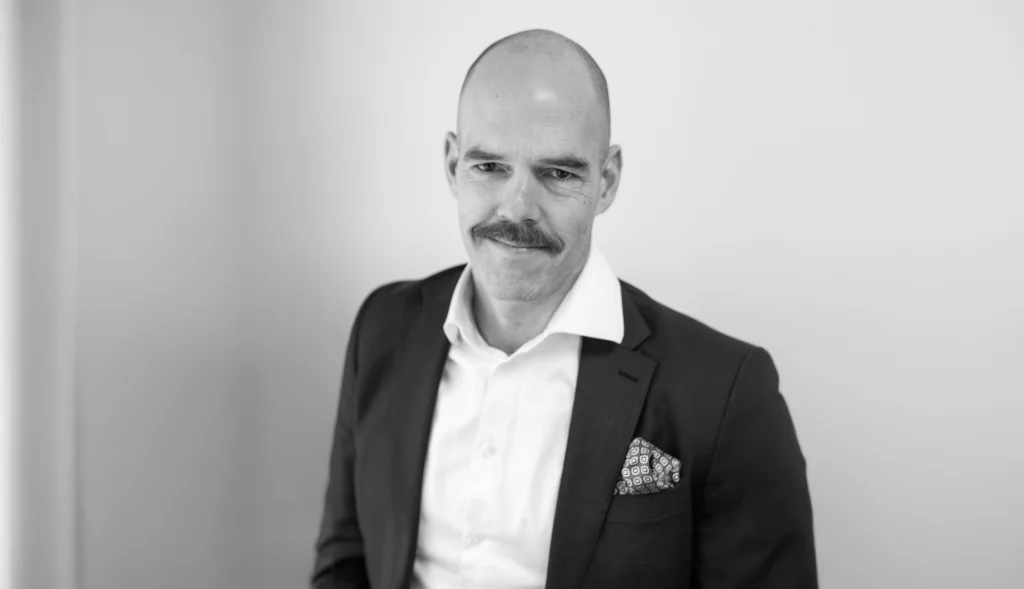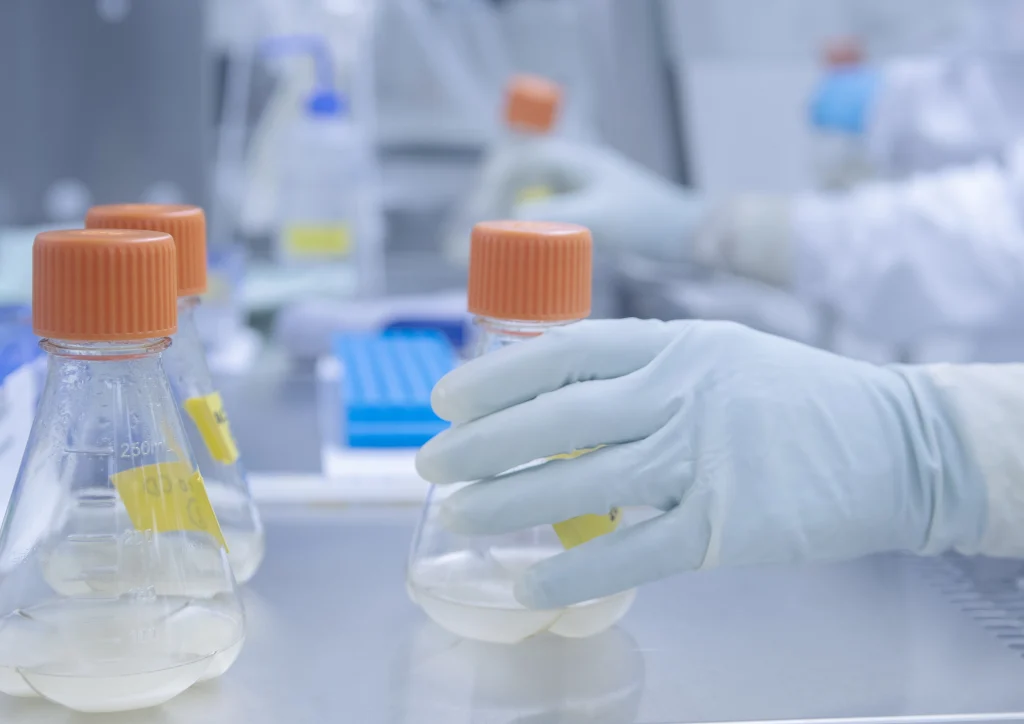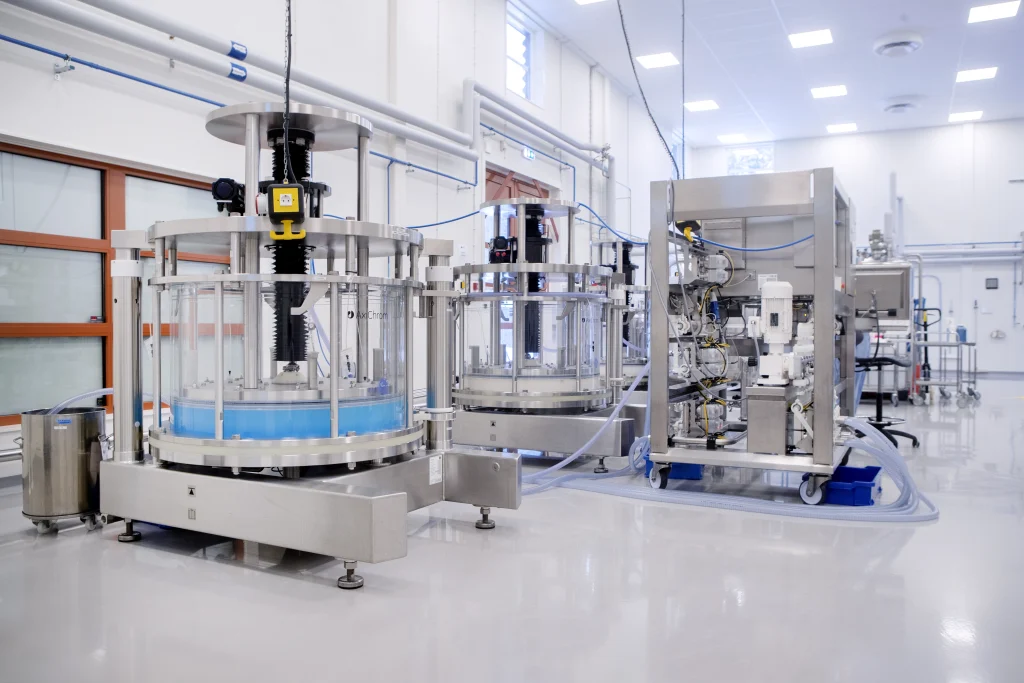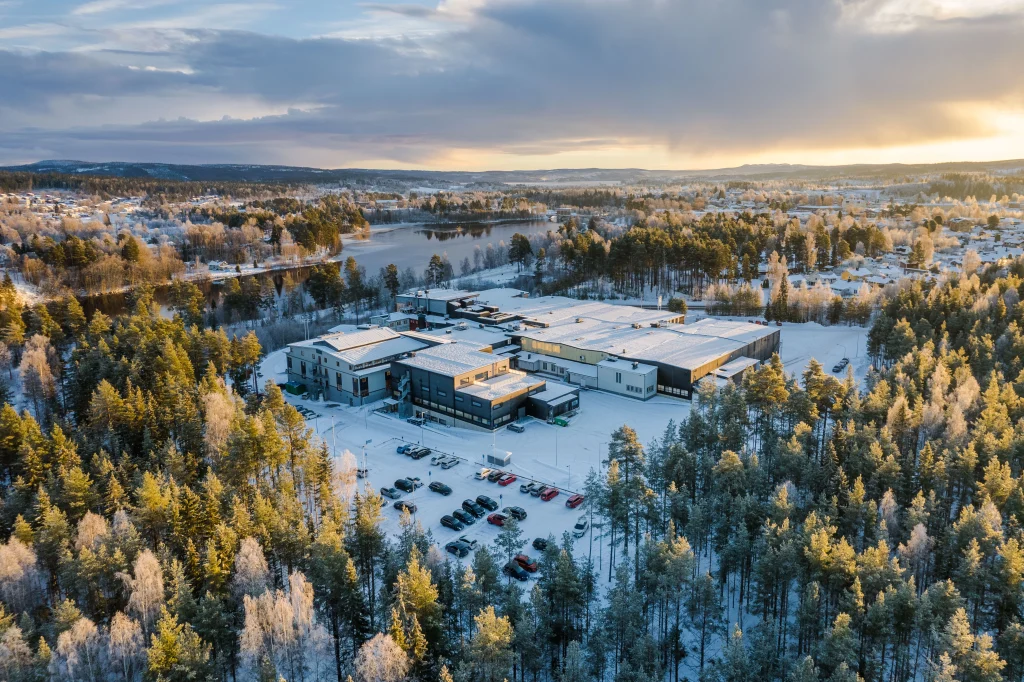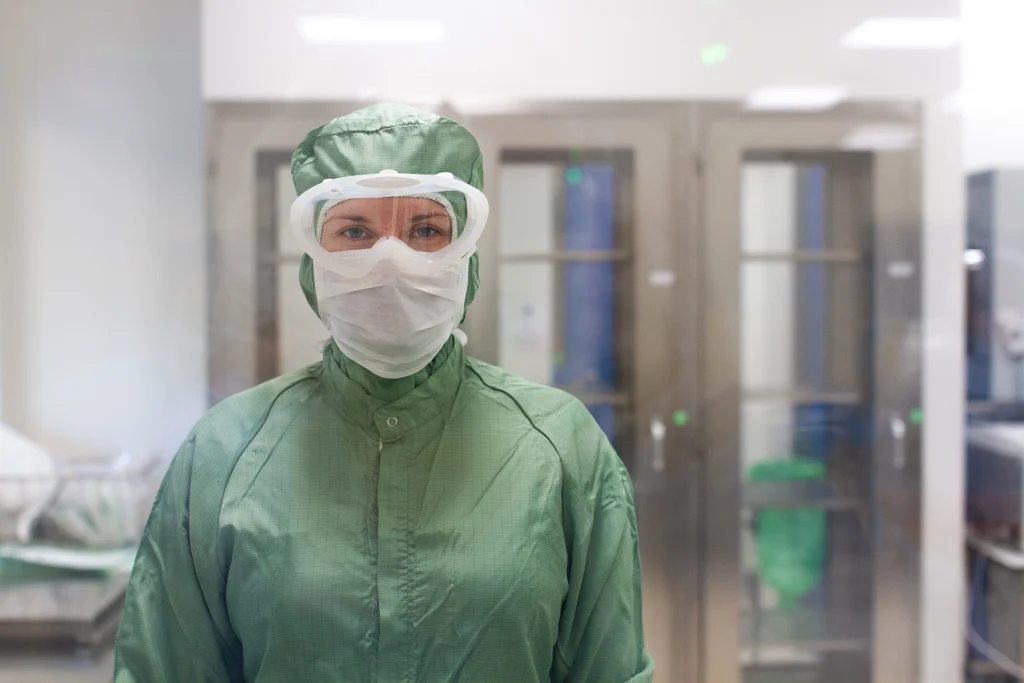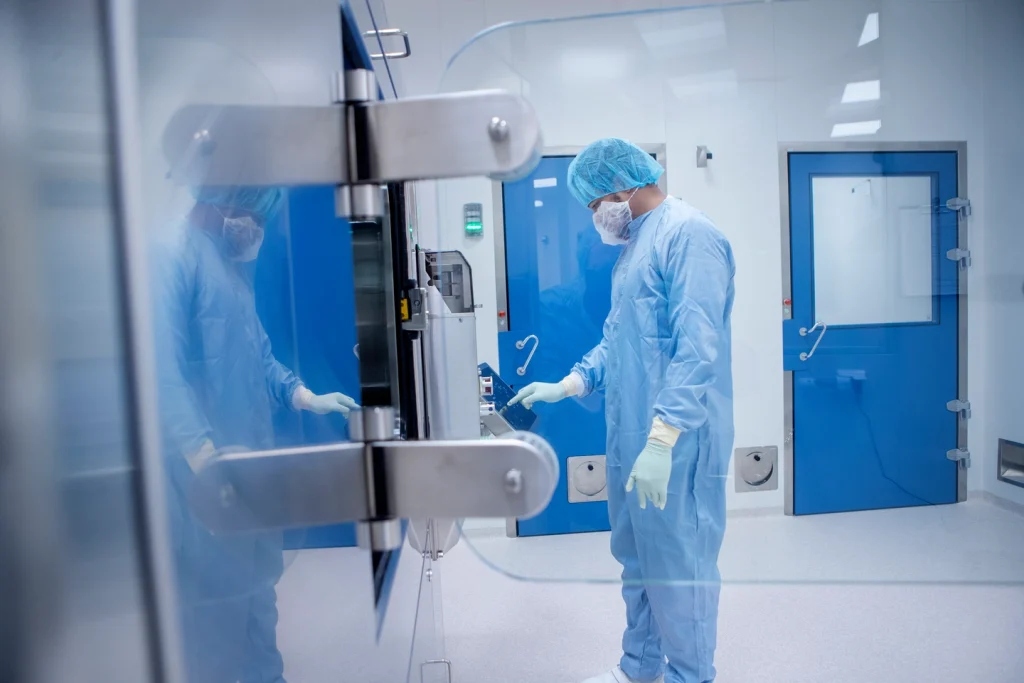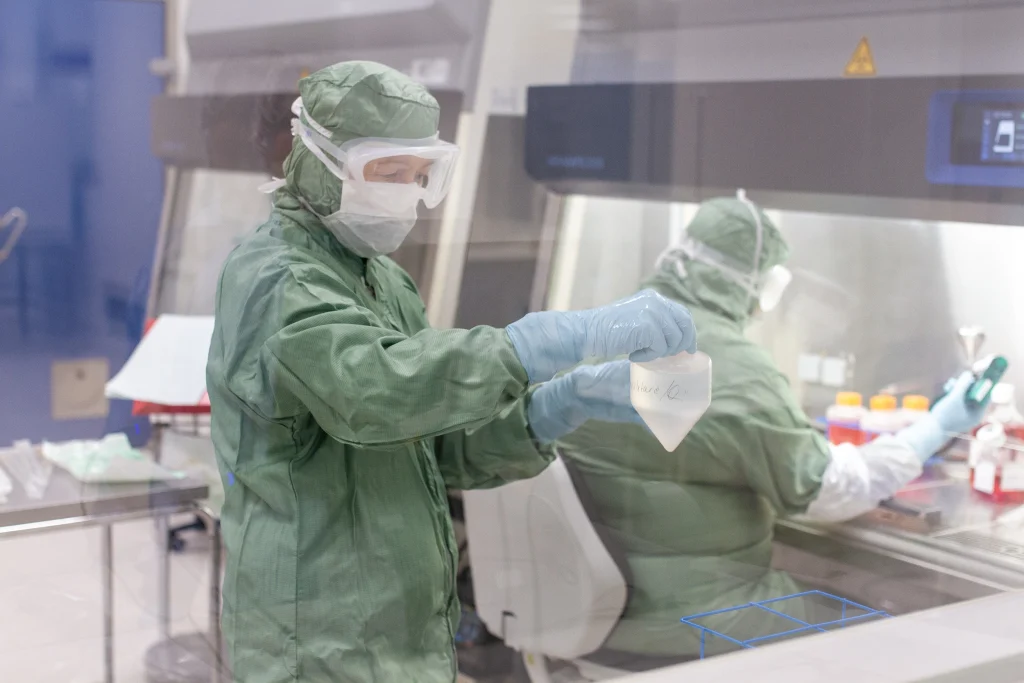Outer membrane vesicles (OMVs) and extracellular vesicles (EVs) are unlocking new possibilities in vaccines and therapeutics. OMVs, with their natural adjuvant properties and capacity to carry antigens, enhance immune responses, while EVs, as immune-silent carriers, offer a versatile platform for delivering a range of drug substances. NorthX Biologics is at the forefront of manufacturing these nanoscale technologies, addressing key manufacturing and analytical challenges to accelerate their clinical potential.
Authors: Isa Lindgren, Ph.D., Head of Analytics, and Ola Tuvesson, Chief Technology Officer, NorthX Biologics
Expanding applications of vesicle-based therapeutics
Outer membrane vesicles (OMVs) derived from gram-negative bacteria and extracellular vesicles (EVs) from mammalian cells are emerging as promising platforms for vaccines and therapeutics. Their unique characteristics make them highly versatile tools for addressing diverse medical needs.
OMVs are naturally released by gram-negative bacteria to aid in their survival, delivering virulence factors and DNA to host cells.1–3 These nanoscale vesicles mimic bacterial surfaces, incorporating antigens and pathogen-associated molecular patterns (PAMPs) without pathogenicity. Their small size promotes cellular uptake and effectively triggers both innate and adaptive immune responses. As a result, OMVs are gaining attention as both adjuvants and standalone vaccines.
Historically, four OMV-based vaccines targeting meningitis-causing bacteria have been approved in the United States and Europe, though only two remain commercially available due to declining infection rates and reduced demand.1 Today, research is expanding into new candidates targeting pathogens such as COVID-19, invasive non-typhoidal Salmonella, Neisseria gonorrhea, Shigella, and Hemophilus influenzae type b (Hib), with several currently in phase I or II clinical trials. Of particular interest is VAXELIS, a hexavalent pediatric vaccine under development by Merck & Co., which combines OMV-based actives with toxins and inactivated viruses. Advances in genetic engineering have also enabled OMVs to target pathogens other than their bacterial sources, achieving high safety and immunogenicity.
Beyond vaccines, OMVs are being explored as carriers for proteins and nucleic acids. While loading heterologous proteins onto OMV surfaces remains a technical challenge, progress in chemical conjugation, molecular engineering, and glycoengineering is helping to overcome these barriers.1 The dense expression of antigens on OMV surfaces has been shown to significantly enhance immune responses.2 Recent innovations also include alternative delivery routes for OMV-based vaccines, such as intranasal administration, which has demonstrated localized and systemic immunity in animal studies with excellent safety profiles.
EVs, on the other hand, have no approved therapeutic or vaccine products yet, but they are the focus of a rapidly growing number of clinical trials — outpacing those for OMVs. These nanoscale vesicles, produced by mammalian cells, serve as intercellular messengers, carrying cellular components such as surface receptors, signaling proteins, transcription factors, enzymes, extracellular matrix proteins, nucleic acids, and lipids.5 Their involvement in numerous signaling pathways allows them to mediate both physiological and pathological processes, including cancer metastasis and viral propagation.
EVs’ natural presence in bodily fluids has also spurred interest in their use in diagnostic applications. Furthermore, their ability to transport bioactive molecules across biological barriers with minimal immunogenicity makes them highly attractive as potential targeted drug delivery vehicles.6 Common sources of EVs include immune cells, mesenchymal stem cells (MSCs), cancer cells, and human kidney embryo (HEK) cell lines.
As of 2023, nearly 50 active clinical trials were investigating EV-based therapeutics across a broad spectrum of indications, including pain management, hair and bone loss, dementia, infectious diseases, autoimmune conditions, cancers, and gastrointestinal disorders.6 This breadth highlights the growing recognition of EVs’ therapeutic potential in both established and emerging medical fields.
Overcoming limitations in drug delivery with vesicle technology
The delivery of genetic material for vaccines or therapeutics has traditionally relied on viral vectors owing to their inherent efficiency. Viruses are naturally optimized for cellular infection and the delivery of nucleic acid cargo. Adeno-associated viral (AAV) vectors, for example, can leverage a variety of serotypes to achieve targeted delivery to specific cell types in vivo, making them highly effective in many contexts.
Despite their advantages, viral vectors come with notable risks and limitations. Pre-existing immunogenicity, where the immune system recognizes and neutralizes viral carriers before they can deliver their payload, remains a significant hurdle. Additionally, viral vectors are typically limited in their ability to deliver substances beyond nucleic acids, which restricts their versatility.
In contrast, vesicles such as OMVs and EVs present a highly adaptable alternative. These nanoscale carriers are capable of transporting not only nucleic acids but also recombinant proteins, antigens, and a variety of other drug substances, offering significantly broader therapeutic potential. Vesicles also avoid the issue of pre-existing immunogenicity, a key drawback of AAVs, and can be further engineered to enhance specificity and functionality.
This flexibility positions OMVs and EVs as ideal candidates for applications requiring customized and diverse payload delivery, while their immunological profile provides an edge in scenarios where viral approaches may be less viable.
Tackling manufacturing complexity for vesicle-based therapeutics
Producing OMVs and EVs involves unit operations similar to those used for other biologic drug substances. However, the nanoparticle nature of these vesicles introduces unique challenges, particularly during downstream purification, where consistency and scalability are critical.
OMVs are typically produced through bacterial fermentation, employing processes similar to those used in protein production. When using anaerobic bacterial strains, strict control measures are needed to minimize exposure to air, adding a layer of complexity to the manufacturing process. To ensure sufficient yields, genetically engineered cell lines are often utilized. OMVs are secreted as nanoparticles into the supernatant, allowing for separation from cells through ultracentrifugation at small scales or microfiltration and tangential flow filtration (TFF) at larger scales. Further purification steps, such as chromatography, are employed to isolate the vesicles, with additional steps required for viral inactivation, removal of contaminants, and final formulation.
Scaling up these processes remains a significant hurdle for manufacturers. Ultracentrifugation, while effective at the lab scale, is impractical for large-scale production owing to its labor-intensive nature and low throughput. Similarly, size-exclusion chromatography — commonly used for vesicle purification — has limited capacity compared to other chromatography methods, presenting challenges as demand grows.
Innovative solutions are being explored to address these scalability issues. Efforts are underway to streamline vesicle purification and adapt existing bioprocessing technologies for larger-scale applications. By investing in scalable platforms and refining production techniques, innovative manufacturers are steadily working to bridge the gap between early-stage research and commercial manufacturing of OMV and EV-based therapeutics.
Addressing analytical uncertainty
The inherent complexity and diversity of vesicle-based vaccines and therapeutics present significant challenges for comprehensive characterization and quality control. A foundational aspect of analysis is determining particle size distribution, a critical parameter given that OMVs and EVs exist as nanoparticles. However, even this relatively straightforward step can become complicated, as the appropriate target size must first be established to assess whether a product’s size distribution aligns with specifications.
The composition of OMV and EV particles is far more challenging to analyze. These vesicles are complex structures, often containing diverse biological components, making it difficult to define their profiles and ensure consistency. The difficulty is heightened in OMV formulations that include a mix of vesicles, membrane particles, and other substances. In some cases, the incorporated proteins offer an analytical “handle,” simplifying certain evaluations. However, these formulations still demand rigorous methods to characterize their heterogeneity and ensure compliance with specifications.
Consistency is critical, given the variability between batches. Methods must focus on ensuring uniform particle size distribution and consistent levels of incorporated antigens and naturally occurring proteins. Achieving this requires the use of cell lines capable of producing vesicles with reproducible profiles across batches.
Common analytical techniques include dynamic light scattering (DLS) for particle size analysis, high-performance liquid chromatography (HPLC) for separating components, capillary electrophoresis for profiling proteins, and assays for total protein quantification. However, developing assays that are both accurate and sensitive can be particularly challenging when vesicles require high detergent levels for lysis during testing. This variability often complicates the measurement of components like total protein content.
Potency assays, which are essential for determining the functional efficacy of vesicle-based products, represent another bottleneck in GMP manufacturing. As with cell therapies, these assays must be tailored to each specific product, requiring significant time and resources to develop. The lack of standardized potency assay frameworks adds another layer of complexity, contributing to delays in advancing vesicle-based products through clinical and commercial stages.
Overcoming safety challenges for OMVs and EVs
As biologic products, OMVs and EVs are subject to stringent safety requirements, ensuring they meet regulatory standards for microbial contamination, endotoxins, and adventitious agents. These measures are critical to protect patient safety and to demonstrate consistent quality across production batches.
OMVs, commonly used as adjuvants, require extensive pyrogen testing due to their inherently pyrogenic nature. Depending on the OMV source organism, the use of standard endotoxin quantification methods may prove insufficient, and non-endotoxin pyrogens have to be evaluated. Safety assessments for OMVs not originating from gram-negative bacteria need to be performed using non-endotoxin pyrogen detection systems, such as monocyte activation testing (MAT). With high intrinsic pyrogenicity, absolute quantification of pyrogens may not be possible, and analysis must instead rely heavily on demonstrating batch-to-batch consistency, ensuring that the pyrogenic activity remains uniform and predictable. The true safety of OMVs is ultimately validated through clinical studies, where their immunogenicity and other safety parameters are closely monitored.
In contrast, EVs are less inherently immunogenic, simplifying some safety assessments. Non-endotoxin pyrogens associated with EVs can often be both defined and quantified, enabling more straightforward analytical approaches. However, rigorous testing is still essential, particularly as EVs advance toward therapeutic applications. Maintaining consistency in the presence of potential contaminants or immunogenic components is key to ensuring the safety and efficacy of EV-based products.
For both OMVs and EVs, the development and implementation of robust safety protocols tailored to their unique properties are essential to support their advancement as vaccines and therapeutics.
Breaking barriers in early-stage vesicle development
The relative immaturity of the OMV and EV fields presents significant challenges for developers aiming to bring new vaccines and therapeutics to market. Chief among these is the lack of regulatory clarity, which creates uncertainty around development pathways and compliance expectations. This ambiguity is particularly daunting for smaller, emerging firms that often lead innovation in this space but face limited access to funding. Typically, significant financial investment only becomes available after the generation of phase I clinical data, requiring developers to absorb the substantial upfront costs needed to reach this milestone.
On the production side, one of the biggest hurdles is developing high-yielding manufacturing processes tailored to these complex vesicle products. Achieving reproducible outputs while maintaining consistency and scalability requires careful optimization. Compounding this challenge is the need to establish robust analytical methods that can accurately characterize vesicle composition and behavior.
Balancing process development is another key issue. Overdevelopment at early stages can exhaust limited resources, while insufficient effort may result in suboptimal processes that hinder progress. Developers must carefully identify and validate the right set of critical quality attributes (CQAs) for each specific product, ensuring they are both scientifically rigorous and commercially viable. Additionally, creating a fit-for-purpose analytical package capable of generating accurate and consistent data across development stages is critical for regulatory approval and downstream success.
Navigating these early-stage challenges demands strategic decision-making and innovative problem-solving, as well as close collaboration between developers, contract development and manufacturing organizations (CDMOs), and regulatory bodies to accelerate the maturation of the OMV and EV fields.
NorthX Biologics: advancing OMV and EV innovation
NorthX Biologics stands out as one of the few CDMOs with substantial experience in nanoparticle-based vaccine development, actively supporting several OMV projects and engaging in discussions with companies developing EV-based therapeutics. This depth of expertise positions NorthX Biologics as a leader in a rapidly evolving field.
As a smaller, agile CDMO, NorthX Biologics excels at tailoring its approach to meet the specific needs of each client. Viewing client relationships as true partnerships, the company provides not only manufacturing services but also scientific consultation and innovative problem-solving. This flexibility enables NorthX Biologics to work with specialized bacterial strains that may fall outside the standardized platform technologies used by larger CDMOs, ensuring bespoke solutions for even the most niche requirements.
At NorthX Biologics, we offer end-to-end support, from early-stage development to clinical manufacturing, leveraging robust capabilities in adherent cell culture using fixed-bed and hollow-fiber bioreactors. Our comprehensive suite of analytical methods is designed to be adaptable to the unique demands of each project. Furthermore, NorthX Biologics continues to invest heavily in manufacturing and analytical technologies to deepen our understanding of OMV and EV products, ensuring that we deliver the highest level of support. Our expertise in nucleic acid therapies further strengthens our ability to assist clients seeking to use OMVs and EVs as delivery vehicles.
Significant progress on the horizon
With a growing number of OMV and EV candidates advancing through clinical development, the field is poised for transformative progress in manufacturing and analytical technologies over the coming years. At NorthX Biologics, we anticipate playing a key role in driving these advancements, building on our expanding expertise and experience.
We are actively developing a robust OMV analytical platform designed to address the shared characteristics of the diverse bacterial strains used in OMV production. This platform will embody a plug-and-play approach, enabling streamlined analytics by employing standardized technologies wherever possible. By simplifying and accelerating the analytical process, this platform aims to reduce development timelines and support the scalability of OMV-based products.
Looking ahead, we are equally excited to leverage our expertise in OMVs to establish a similar analytical platform for EV-based therapeutics. Drawing parallels between these vesicle types, NorthX Biologics aims to extend our innovative solutions to encompass EV development, ensuring comprehensive support for clients as the industry evolves. This dual focus on OMV and EV platforms will position NorthX Biologics at the forefront of vesicle-based therapeutic innovation, meeting the needs of clients across diverse therapeutic areas.
References
- 1. Micoli, F, R Adamo, and U Nakakana. “Outer Membrane Vesicle Vaccine Platforms.” BioDrugs 38: 47–59 (2024).
- 2. Weyant, KB, A Oloyede, S Pal, et al. “A modular vaccine platform enabled by decoration of bacterial outer membrane vesicles with biotinylated antigens.” Nat. Commun. 14: 464 (2023).
- 3. Kashyap, Dharmendra et al. “Outer Membrane Vesicles: An Emerging Vaccine Platform.” Vaccines (Basel). 10:1578 (2022).
- 4. Van der Ley, Peter and Virgil EJC Schijns. “Outer membrane vesicle-based intranasal vaccines.” Current Opinion in Immunology. 84: 102376 (2023).
- 5. Kumar, MA, SK Baba, HQ Sadida, et al. “Extracellular vesicles as tools and targets in therapy for diseases.” Sig. Transduct. Target. Ther. 9: 27 (2024).
- 6. Du, S, Y Guan, A Xie, et al. “Extracellular vesicles: a rising star for therapeutics and drug delivery.” J. Nanobiotechnol. 21: 231 (2023).
Ola Tuvesson
Chief Technology Officer
NorthX Biologics
As CTO, Ola is leading NorthX Biologic’s development and project organization, focusing on delivering technologies and strategies to ensure high-end services within bioprocessing and analytics. He has more than 20 years’ experience from the pharma and biotech industry, ranging from early development to commercial GMP manufacturing. Ola has worked in several fields, including ATMP products, vaccines, and other biologicals. He has the essential knowledge to take a product from early pre-clinical development into clinical trials and to the market.
Isa Lindgren, Ph.D.
Head of Analytics
NorthX Biologics
Isa Lindgren, Ph.D., is Head of Analytics at NorthX Biologics, leading the QC and Analytical Development teams across the Matfors and Stockholm sites. With a background of 15+ years in life sciences research and experience from preclinical work at Chiesi Pharma in biologics and ATMPs, Isa has extensive expertise in analytics. Six years in the US have equipped her with valuable international experience for global communication and high-level customer care. Known for her technological acumen, she ensures NorthX Biologics remains a front-runner in analytics to deliver biologics at the highest quality.
